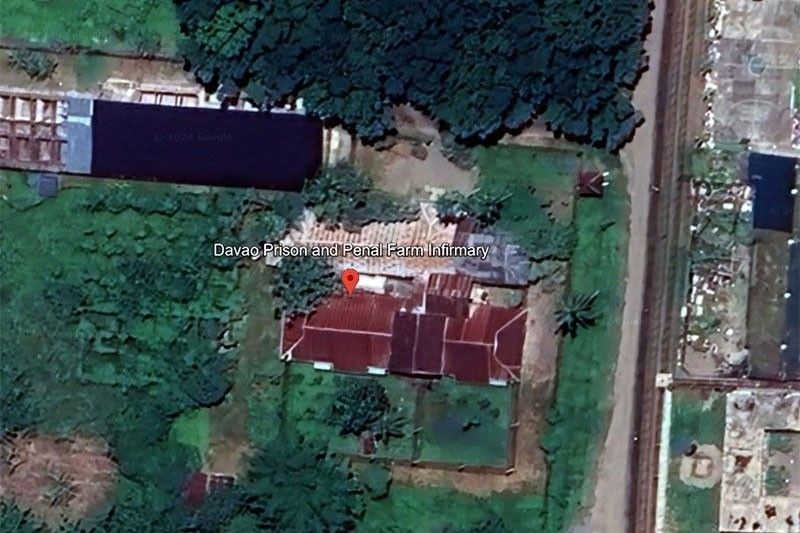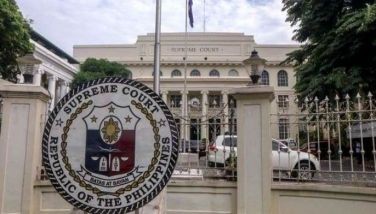House taps NBI to probe Davao prison murders

MANILA, Philippines — The House quad committee has directed the National Bureau of Investigation (NBI) to investigate the death of three Chinese drug lords inside the Davao Prison and Penal Farm (DPPF) in 2016 during the war on drugs of former president Rodrigo Duterte.
At a hearing on Thursday, Antipolo City Rep. Romeo Acop made a motion for the panel to ask the NBI to dig deeper into the killings of Chu Kin Tung, Li Lan Yan and Wong Meng Pin in the penal colony.
Hearing no objection, quad committee co-chair Robert Ace Barbers declared the motion as “carried.”
The committee is looking at the Chinese nationals’ deaths as part of an investigation into the war on drugs and extra-judicial killings during the Duterte administration.
The panel is primarily looking at the involvement of former Philippine Charity Sweepstakes Office (PCSO) general manager Royina Garma in the assassination of the drug lords.
Garma, a former police colonel who held various police posts in Davao City, had visited the penal colony in July 2016 and asked about the whereabouts of the three drug lords.
After this, “Oplan Galugad” was conducted at the facilities, leading to the transfer of the three drug lords to an isolation facility.
Two inmates, namely Leopoldo Tan Jr. and Fernando Magdadaro, have admitted to killing the drug lords.
Garma denied having any role in the murders, despite the testimonies and sworn affidavit executed by some witnesses detailing that she directed the killing.
Among these witnesses is former DPPF head Senior Supt. Gerardo Padilla, who implicated the former president and claimed to congratulate him for the death of the three drug lords.
Visa canceled
A human rights advocate believes that the cancellation of the United States visa of Garma could be due to human rights violations linked to Duterte’s war on drugs.
The former police officer confirmed at the same hearing that her US visa – set to expire in 2028 – was canceled. She supposedly learned of her visa’s cancellation while in Japan for her connecting flight to the US last month.
The US State Department, in response to an inquiry from The STAR, said “it cannot discuss details of individual cases” as visa records are confidential under US law.
However, Carlos Conde, senior researcher at Human Rights Watch, said provisions in US appropriations laws “could be why the US canceled the visa” of Garma, who is currently detained at the House of Representatives after she was cited in contempt.
The US appropriations laws, Conde noted, have anti-kleptocracy and human rights provisions that make officials of foreign governments and their immediate family members ineligible for entry into the US if “the Secretary of State has credible information [that they] have been involved, directly or indirectly, in significant corruption, including corruption related to the extraction of natural resources or a gross violation of human rights.”
This is separate from the Global Magnitsky Act, which allows the US government to sanction foreign government officials for committing human rights offenses.
Various human rights groups previously called for the imposition of Magnitsky sanctions on several individuals involved in the drug war, including former president Duterte.
The US has not announced any Magnitsky sanction in relation to Duterte’s war on drugs, which is currently being investigated by the International Criminal Court.
For Conde, the cancellation of Garma’s US visa “should serve as a warning to law enforcers that there will be a time of reckoning for their misconduct.”
“An abusive commander-in-chief cannot protect them forever. The more human rights violations they commit, the smaller their world becomes,” he added.
He expressed hope that other human rights-based sanctions that the US has, including the Global Magnitsky Act, will also take effect.
“I’m curious to know of other countries that have done this sort of thing. Particularly European countries who like to brag about their adherence to human rights and… have human rights sanctions on abusive governments like the Philippines,” he said.
He added that the fight for accountability for the tens of thousands of deaths due to the extra-judicial killings “ has just begun.” – Janvic Mateo
- Latest
- Trending





























